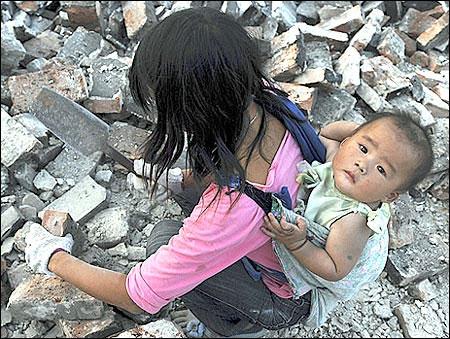 | « Back to article | Print this article |
Why migrant labour is India's lifeblood
Internal migration is crucial for all economies, but especially for those, like India's, experiencing unbalanced growth.
It keeps the national economy dynamic, while allowing parts of the country that aren't growing quite fast enough to export their excess labour.
Some states depend heavily on remittances from workers who have moved to other parts of India, where their productivity - and hence wages - are higher.
Restrictions on such movement, whether legal or informal, greatly hamper economic growth and overall prosperity.
Click on NEXT for more...
Why migrant labour is India's lifeblood
One of the most important tasks of the government is, thus, to ensure that a single market for labour exists both in law and in reality across India.
This is why assuaging recent concerns about the safety of citizens from India's northeastern states who have migrated to other parts of the country to work should be seen as a major responsibility of governments, both at the Centre and the states.
It is important to emphasise that very few attacks on people from the northeast have been reported - some in Pune, one in Bangalore - and even fewer have been confirmed as linked to a pattern stemming from anger over the violence in Assam's Kokrajhar district.
Click on NEXT for more...
Why migrant labour is India's lifeblood
Rushing to a conclusion about a pattern, therefore, would be a mistake. However, it is undeniable that a combination of circumstances - rumour-mongering on the Internet and over SMS, some inaccurate reports on the local media in Assam - has reportedly caused some from the northeast to leave their places of employment.
The number of people leaving is, of course, small in comparison to the number staying - but, equally, action cannot wait until the number of those leaving has grown larger.
The Karnataka state administration, once prodded by the Centre, responded by sending a senior minister to the railway station to assure migrant workers that they were welcome.
Click on NEXT for more...
Why migrant labour is India's lifeblood
It must go further, and attempt to track down the source of the rumours that lie at the heart of the problem.
Patrolling in neighbourhoods where more migrant workers live should be stepped up, and any reports of attacks should be promptly and visibly investigated.
This is not just a matter of the basic responsibility of any state - though law and order is its primary function. It is also a question of protecting its own growth engine.
Given their language skills, in particular, people from the northeast have become crucial to several segments of India's service sector.
Service sector growth continues to be the backbone of GDP, and no state can take the risk of labour becoming more scarce.
Click on NEXT for more...
Why migrant labour is India's lifeblood
In fact, India's states and its city administrations need to rework their entire attitude to migrants. Mumbai has been particularly problematic in this respect, with an angry nativist politics being given free rein.
Even other parts of Maharashtra have not been exempt; Nashik saw thousands of North Indians leave after Raj Thackeray's Maharashtra Navnirman Sena intensified its attacks on "outsiders" - which also severely hit local industry.
The simple point is: without the freedom to move anywhere in India to work, citizenship loses much of its meaning, and without the ability to hire from the largest possible pool of labour, growth will become even more difficult to achieve.
State and city governments must move from responding to migrants' worries only when there's a crisis, to competing as attractive destinations - by demonstrating they are safe and welcoming.





